 |
|||||||||||||
|
|
|||||||||||||
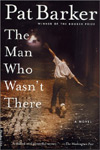 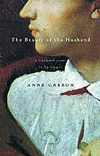 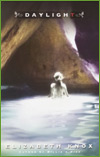 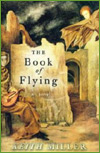 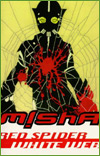 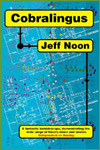 |
Here is an ongoing list of interstitial books recommended by diverse contributors. These are works that cross the borders between genres, or defy categorization altogether. Different contributors have different ideas about what makes a book interstitial, which is why we have asked them to annotate and sign their recommendations. If you want to discuss these selections, or recommend your own, please join us on the IA Discussion and Bulletin Board Published Literature Barker, Pat. The Man Who Wasn't There. (Picador, 2001) Pat Barker is a brilliant writer of compelling, vivid, heart-rending novels, and until recently, I thought she worked only in realism of the finest kind. Then I tracked down and read a copy of The Man Who Wasn't There, a thin book, the least-known of Barker's works. The Man Who Wasn't There has no stars on Amazon.com or co.uk, no reader's reviews. Its editors' reviews on both sites are terse and uninformative. I believe that this novel's obscurity is a result of its interstitiality. In The Man Who Wasn't There you'll continue to find the close attention to the realistic conditions of poverty in England that made Barker famous. Formally the novel oscillates betweens scenes of Colin's life in post-WWII England and the script of Colin's imagined movie about the French Resistance (in which he, of course, stars). That switching back and forth in the format of book would qualify as interstitial as far as I'm concerned, but Barker adds even more to this tightly written novel. Early in the book, Colin finds himself followed by a man all in black. Nobody else seems to see him — almost nobody. Is the man a ghost, a character from Colin's imagined movie, a figure for Colin himself, a fever dream? Can the reader, let alone Colin, disentangle real life from fantasy, the horror of the recent war from the terror of the uncanny? I don't think this book was ignored on its release — a quotation from The Guardian says that "We get a sense of the thinness of the walls — where, indeed, they exist at all — between reality and fantasy, sex and violence, the funny and the decidedly not so." It's a shame this book, so close to and yet so unlike Barker's other brilliant, wrenching novels has lost the attention it should rightfully get. (Veronica Schanoes) Carson, Anne. The Beauty of the Husband: A fictional essay in 29 tangos. (Vintage, 2001) An unclassifiable volume of half-narrative, half-essayistic poetry by Anne Carson, a meditation on the Keatsian theme "Beauty is Truth, Truth Beauty" in the context of the story of a woman whose handsome cheatin' husband deceives her throughout their relationship. (Patrick O'Connor) Knox, Elizabeth. Daylight. (Ballantine Books, 2003) Another exploration of the permeable boundary between the real and the super-real from a writer who seems to be making a career of combining genres in strange and wonderful ways. A spelunker on vacation in Europe helps recover the corpse of a drowned woman who reminds him of a woman he met years earlier who saved him when he got lost in a cave and was then washed away. This merciful gesture embroils him with a devout Catholic priest engaged in researching the life of the Venerable Sr. Martine, with an eye to canonization and a pair of enigmatic twins, one of whom is a vampire. The thing that makes Daylight interstitial is that it raises, and then frustrates, several genre expectations. You begin thinking this is a strictly realistic novel about the legacy of the French Resistance on modern France, about faith and miracles and what it means to be a saint. And so it is. But it's also a vampire novel, with vampires who are not in the least demonic or doomed or anything but very human beings who have contracted a rather unusual blood disease, which seems science fictional, but isn't. Quite. (Delia Sherman) Miller, Keith. The Book of Flying. (Riverhead Books, 2004) A fabulistic tour de force, akin to the works of Jeff Vandermeer and Italo Calvino, Miller's novel centers around a shy librarian in a world made up of land dwellers and flying people. One day the librarian, Pico, saves a flying girl from drowning, and over a course of several weeks the two fall in love. The girl, though, is unable to fully commit herself to the relationship with Pico because she is of the air and he, the earth. Stumbling upon a tome with directions to a lost city where one can receive wings, Pico sets out on this journey in the hopes that, if he has wings, the girl will fully love him. At this point the book begins an archetypal journey narrative, but in the journey Miller blends various sorts of stories together: fable, anecdote, morality plays, and fairy tales. He blends these various types of stories through a surrealistic medium of language that allows for allegory and symbolism as well as personal, intimate stories to coexist. The book sometimes tumbles and grows cold, though it always recovers. Sometimes the author falls into a precious prose, but overall it is a beautiful art object. The cover is graced with the art of long ignored surrealist painter Remedios Varo, which is a good match, for the tale between the covers is reminiscent of her images and the fantastic worlds she portrayed on canvas. (Christopher Barzak) Misha. Red Spider, White Web. (Morrigan Publications UK, 1990) (reprinted by Wordcraft of Oregon, 1999) Visceral, unrelenting, and achingly lyrical, Red Spider, White Web is arguably the greatest cyberpunk novel ever written. At the same time, calling this novel "cyberpunk" doesn't quite do it justice. As with any work that transcends categorization, one of the ways it achieves this high level of quality is through unpacking and, when necessary, destroying the very tropes that buoy the more traditional cyberpunk novel. The novel follows a group of artists living in Ded Tek, an anarchic zone outside the colder, cleaner utopia of Mickey-san. This quotation pretty much encapsulates the plot: "...Here we've been scuttling the streets like stray cats, in and out of the garbage bins, running from the wire dogs, fighting sickness, starvation, despair, stupid rich kid's gangs, the fucking zombies — and now a killer. For what? A chance to put out a few bits of junk that nobody gives a shit about? " Instead of the Hammett-esque noir style that Gibson (effectively) used in Neuromancer, the prose in this novel is both operatic and raw. Sentences (or fragments) crash into each other. Reading this novel is like driving across a burning bridge — there is little time to breathe, and yet once on the other side, you realize you're never going to forget the experience. Red Spider, White Web doesn't fetishize technology for the sake of it; the artists are certainly unapologetic about using it for their own purposes, but for the most part they are castoffs in the march of progress. At the same time, there's also a sense of empathy and even tenderness imbued in these characters in the midst of hegemonic, corporate firestorms — and their own betrayals of each other. It distills in near-perfect fashion the questions — with no easy answers — that artists have to make in terms of product vs. process, plugging into commercial structures vs. forging an idiosyncratic path. In our world — in which precarious situation is piled upon precarious situation, and notions of community themselves are being "downsized" and deracinated — this novel is more necessary reading than ever. (Alan DeNiro) Noon, Jeff. Cobralingus. (Codex Books, 2001) A bizarre and intriguing instruction manual for creating bizarre and intriguing fictions (or not), Noon's book is a baffling and lovely conundrum. It has cool artwork, shattered typographic poems, and was generally written/constructed with the confidence of one who has been touched by the madness of language. This book doesn't merely defy readerly expectations, it completely ignores them. For more information on Jeff Noon and his other works, check out this site (Barth Anderson) |
||
| 1 | 2 next page | |||